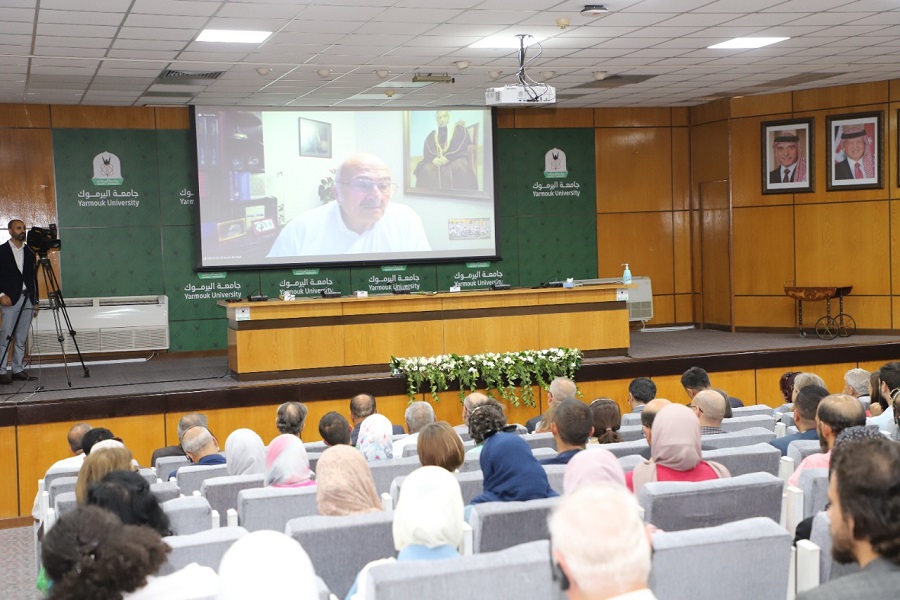
During his participation in the closing session of the fifteenth international conference entitled "History and Archeology of Jordan", HRH Prince El Hassan bin Talal stressed the need to build a participatory and integrative approach that considers the spatial, social and economic dimension to establish a graphic line of dialogue on antiquities and heritage and its relationship to place, plants, water, culture and society. His Highness pointed out the importance of regional cooperation in the study of human culture and its common wealth, calling for investing in the communal heritage of humanity as this can develop a culture of inclusive and multidisciplinary perspective. His Highness further expressed his hope that the region will establish an institution for regional cultural heritage in the Levant and that the end of this conference will mark the beginning of joint work to build a culture of understanding, cultural dialogue, and an understanding of universal values.
The Minister of Tourism and Antiquities, Nayef Al-Fayez, praised the support and attention provided by HRH Prince El-Hassan bin Talal to the conference, and he noted his highness’s keenness to observe the academic outcomes and recommendations presented by the 294 participants in the conference and to support the tourism and antiquities sector in Jordan, as the country is rich in archaeological sites that It tells the story of successive civilizations in the region. He then pointed out the importance of holding such conference, which constitutes a platform for exchanging experiences and knowledge among researchers in various fields of antiquities and coordinating efforts between concerned authorities, which contributes to protecting the civilizational and cultural heritage in the region.
However, the closing session of the conference, which was attended by Sharifa Nouf bint Nasser, President of Yarmouk University, Professor Islam Massad, the Director of the Department of Public Antiquities, Dr. Fadi Balawi, and a number of officials, academics and archaeologists, included a set of recommendations made by the participants in the conference. Most of the recommendations emphasize the need to continue studying and researching the various fields of archeology, anthropology and cultural heritage in a way that contributes to preserving the civilizational and cultural legacy and enable the community to engage with the sustainability and preservation of archaeological sites.





